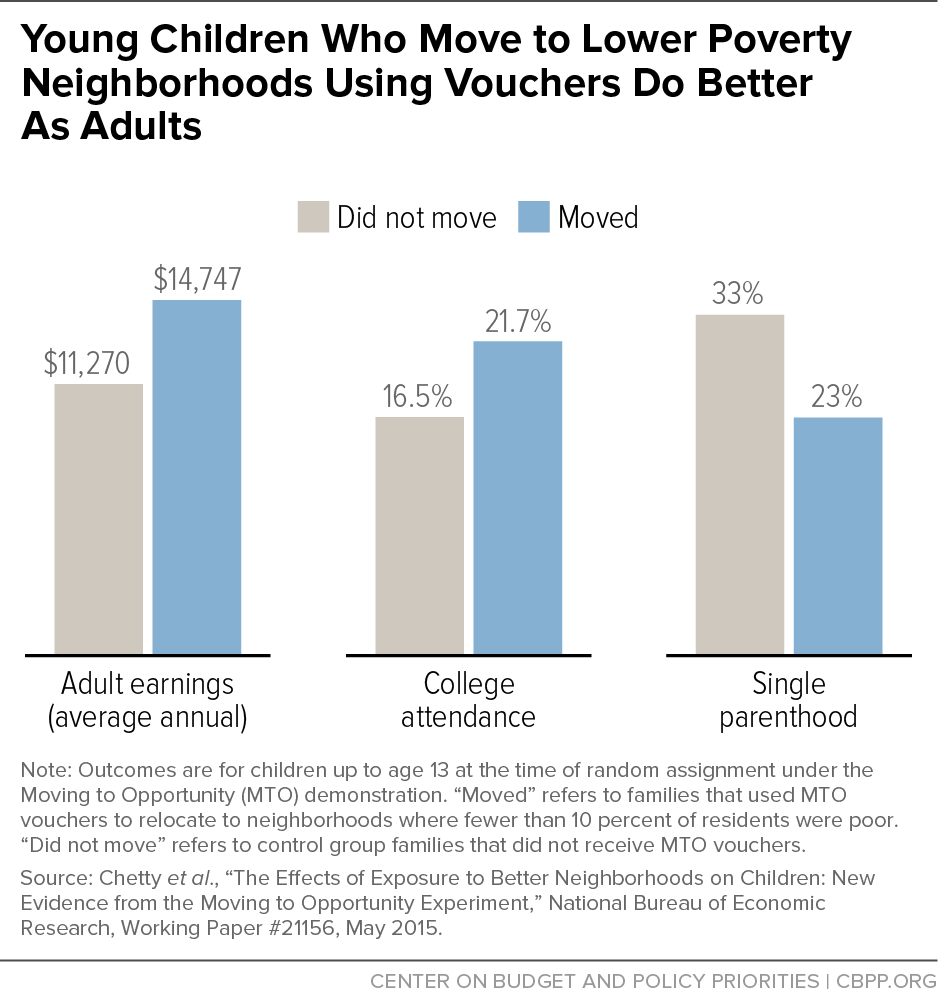BEYOND THE NUMBERS
California policymakers have proposed ways to bolster the stock of affordable housing and help voucher holders access higher-opportunity neighborhoods — steps that will help struggling families contribute more fully to the economy and position the state for longer-term, more broadly shared prosperity.
Governor Jerry Brown’s May budget revision, for example, includes a $2 billion bond bill to reduce chronic homelessness among people living with mental illness, and the state would use an existing high-income tax surcharge dedicated to mental health services to repay the bond.
State Senator Mark Leno has proposed a bill to amend the state’s current fair housing law to clarify that landlords cannot discriminate against renters who use housing vouchers to help pay the rent.
This change would make it easier for struggling families to use vouchers and move to better neighborhoods.
Affordable housing is critical in California, where nearly 1.6 million of the state’s 4.1 million low-income renter households pay more than half their income for rent, Census data show, leaving little for other needs like child care, transportation, or education. And recent research shows that poor children whose families can use vouchers to move from low- to high-opportunity neighborhoods are likelier as adults to earn more and attend college and less likely to be single parents (see chart).
These initiatives would further California’s earlier steps in recent years to invest in key services and grow its economy, showing that states can use forward-looking policy improvements to promote economic opportunity.

